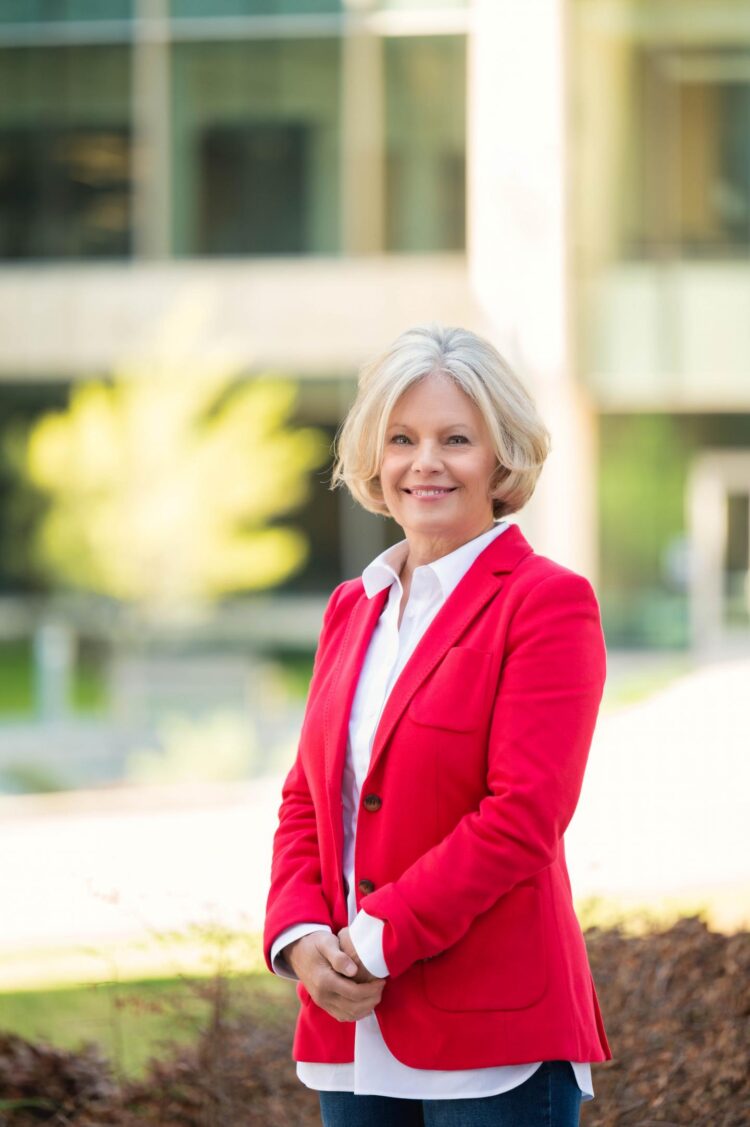National Science Foundation funds UTA-led teacher training program in quantum physics
An assistant professor at The University of Texas at Arlington is working to launch a national training program for high school teachers on how to incorporate quantum physics into their math, science and engineering curricula.
The $998,448 grant from the National Science Foundation (NSF) will allow Karen Jo Matsler, assistant professor in practice and master teacher in the College of Science’s UTeach program, and co-principal investigator Ramon Lopez, UTeach co-director and professor of physics, to offer one of the country’s first nationwide quantum education initiatives for secondary teachers. The UTA team will work with colleagues from the University of Pittsburgh and Brigham Young University.
“UTA’s initiative is the flagship,” Matsler said. “Our models will influence subsequent educator training in the area of quantum information for years to come.”
Quantum information science (QIS) is an interdisciplinary field that draws from information theory, computer science and quantum mechanics to process information in fundamentally new ways. Quantum principles impact contemporary communication methods, technology, innovation, health care, issues of national security and more.
Matsler, a university and high school physics teacher with more than 35 years of experience, said she first encountered quantum physics at a workshop in Canada at the Perimeter Institute for Theoretical Physics and the Institute for Quantum Computing. Recognizing a national lack of quantum education, Matsler began independent study of quantum information through seminars and classes led by industry professionals. Learning from experts, she developed workshops to introduce teachers like herself to the complexities of the field.
“The lectures on quantum computing opened my eyes to new levels of complexity within the field of physics,” Matsler said. “I had been active in teaching and professional development for more than 25 years and had never taught quantum. If that was the case for me, I knew that there would be many other science teachers who weren’t familiar with quantum principles either.”
While officials at the national level discussed the imperative of a quantum workforce and proposed the launch of quantum research centers hosted by universities, Matsler continuously argued that exposure to quantum information must begin in high school classrooms.
“Our government leaders are correct; we need to train university students and members of the workforce in quantum skills,” Matsler said. “But we have to establish a pipeline to feed into those programs. If students have never heard of these concepts before they enter college, they likely won’t choose to study them at advanced levels.”
In 2019, the White House Office of Science and Technology Policy asked Matsler to join a 25-member committee to develop the Quantum Information Science Core Standards, a set of nine key concepts to prepare secondary students to engage with QIS.
“Most quantum experts are at the university and business level. I was ‘low man on the totem pole’ in terms of knowledge, but I have experience providing professional development nationally and a strong background in curriculum development,” Matsler said. “My years of teaching proved to be critical in this initiative. I am very grateful and humbled by the opportunities I now have.”
The three-year educator program will capitalize on familiar content areas in participants’ existing curricula. Matsler argues that small modifications to lesson plans in math, chemistry, technology and other STEM courses will enable teachers to easily integrate quantum theory into their syllabi. The funding will support teachers by providing stipends, resources and equipment for their classrooms. It will also support student STEM camps where high school students can engage in quantum activities and recognize the potential quantum knowledge has for their future careers.
As this program is the first of its kind, Matsler is already fielding questions from colleagues around the country who would like to offer similar resources.
Alexander Weiss, chair of the Department of Physics, said the NSF’s support for this project signifies the necessity of quantum information education.
“This award reflects the originality of the project and the importance of equipping K-12 educators to teach quantum mechanical concepts to students who will grow up in a world where quantum information is of increasing importance,” Weiss said. “Dr. Matsler and Professor Lopez’s work with K-12 educators will greatly enhance UTA’s reputation as a national leader in science-teacher education and professional development.”
###
Media Contact
Linsey Retcofsky
[email protected]
Original Source
https:/





